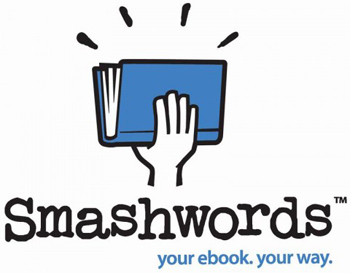
The study conducted by Smashwords is based on data from $25 million in sales generated by the indie/self-publishing e-book vendor. The analysis of this data provided an in-depth understanding of how readers are behaving with regard to their e-book purchases. The respondents were asked questions such as ‘Do readers prefer longer or shorter books’, ‘What is the best price for my book’, ‘Do preorders help sell more books’, and ‘Do series books sell better than standalones’.
Key Findings of the Smashwords Survey
- Consumers prefer longer books: Longer e-books sell better
- Sales power curve of e-book is very steep: The Ebook sales power curve is steep. Despite this, several Smashwords authors are grabbing good income from their books. A few titles are selling fabulously well while most sell poorly. An incremental increase is sales rank can cause an exponential increase is sales.
- Pricing: Indie authors charging lower average prices (ranging between $2.99 and $3.99) are earning better than their counterparts. However, charging ultra-low prices such as $.99 may not be the right way to increase sales.
- “Free” books still work but are not strong as before: Free books are one of the powerful marketing strategies. Studies shows that iBooks generated 39 times more downloads on average than books at any price. However, the effectiveness of ‘free’ has come down in 2014 compared to 2013 (91X) and 2012 (100X) survey results.
- Preorders providing advantage: Though preorders provide an advantage, indie ebook authors are not yet taking advantage of the tool. The survey results makes it clear that ebooks borne as preorders sell more and can help the author to sell well. The first author to effectively utilize preorders will gain advantage just like the first one who enters the new distribution channels gain the most advantage.
- Series yield sales advantage: Series books outsell standalone books.
- Bestselling series have longer books: Authors who write full-length books in their series have greater advantage over authors who break books into smaller chunks. Series books under 50,000 words are at a disadvantage. The survey results suggest that such books might create friction that makes readers incrementally less willing to buy.
- Free series starters earn more: Series with free series starters earn more money than series that do not have free series starters.
- Non-fiction readers are less price sensitive: Readers of non-fiction books are less price sensitive. Non-fiction authors are under-pricing their works and Smashwords suggests that they experiment with higher prices to earn better.
The survey also made an effort to trace “viral catalysts”, something that makes a book more discoverable and enjoyable to readers.
However, the official Smashwords cautions that authors should not base their publishing decisions based only on the results of this survey as these are based on averages. Moreover, the factors that influence a book’s sales performance are usually “multi-dimensional, synergistic, opaque, delayed or simply not apparent”. Smashwords points out that author should consider the results of the survey as clues to make more informed decisions.



